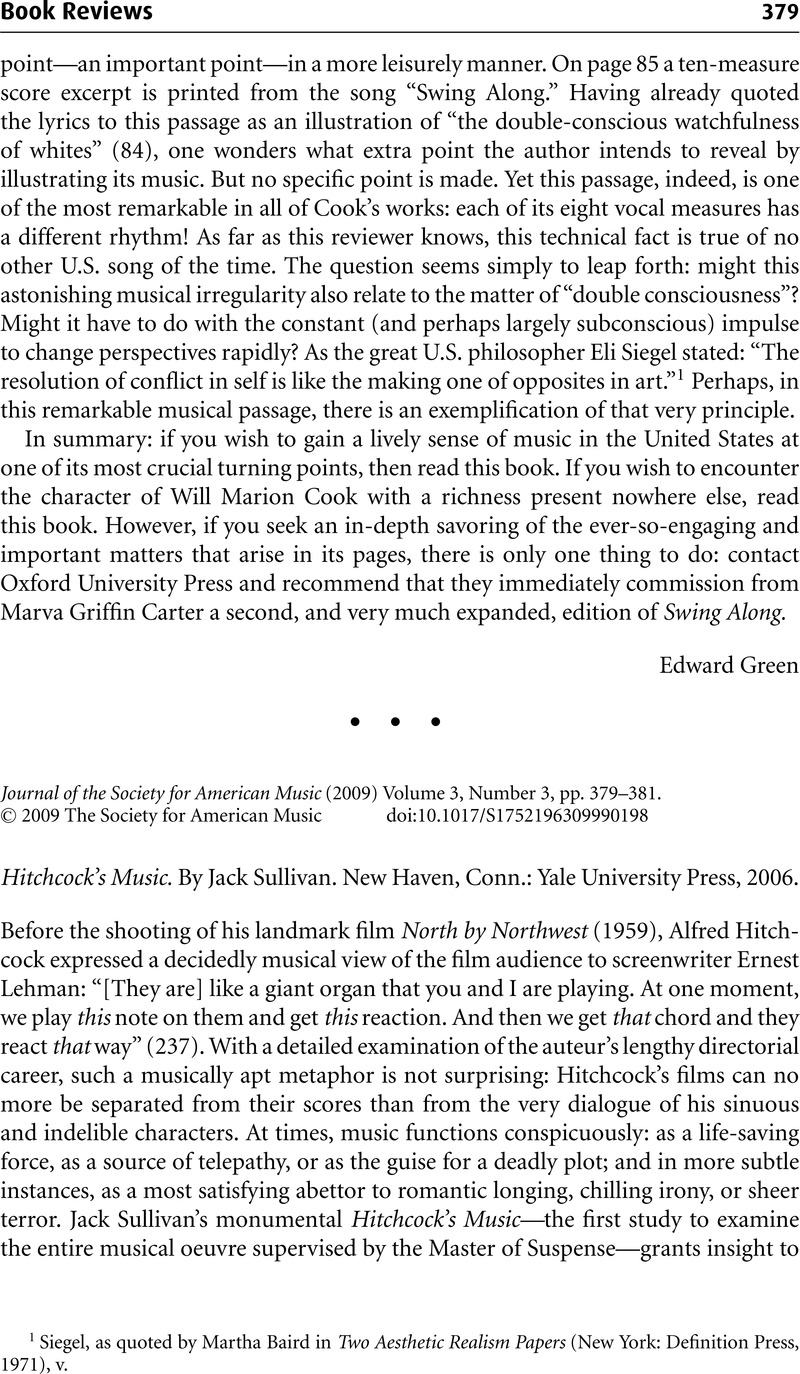No CrossRef data available.
Published online by Cambridge University Press: 01 August 2009

1 Blackmail is, in fact, not Hitchcock's first full-length film, but his first “talkie,” marketed in Great Britain with a humorously pompous Hitchcockian tagline: “See and Hear It—Our Mother Tongue as It Should Be Spoken.”
2 The Paradine Case marked a rather bitter end to the collaboration between Hitchcock and David Selznick, the notoriously demanding producer who oversaw the director's first U.S. film, Rebecca, alongside Gone with the Wind (1939).
3 After The Trouble with Harry, Herrmann composed scores for some of Hitchcock's most celebrated films: The Man Who Knew Too Much (1956), The Wrong Man (1956), Vertigo (1958), North by Northwest (1959), Psycho (1960), and Marnie (1964). He also oversaw the sound design for The Birds (1961), innovatively employing musique concrète as opposed to a traditional score.